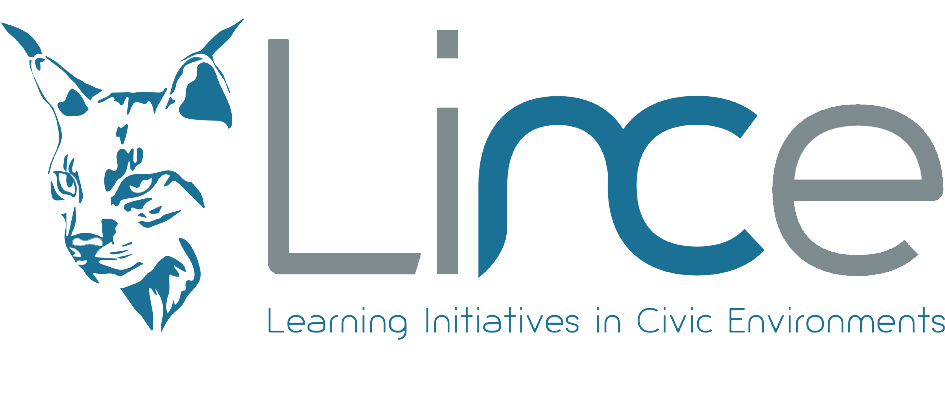Description of LINCE project
Learning Initiatives in Civic Environments (LINCE) is an Eramus + funded strategic partnership with organisations in Spain, Italy and Poland. It gathers vocational training centres, organisations involved in vocational training programmes, regional development bodies and universities cooperating with training programmes in favour of regional cultural initiatives. Several of these partners provide services and advocate for the interests of civic institutions.
The main aim of the LINCE project is to contribute to VET students employment by developing VET - business partnerships aimed at promoting work-based learning through the implementation of a project-based method in the VET courses where the partners are involved .
Two outputs are foreseen as main outcome of the project. The first one will be materialised in tangible audiovisual products created by VET students following the project-based LINCE method in cooperation with cultural civil society institutions involved in the project. They will be disseminated as open results at European level. The students will be coached by the partners putting in practice the competences required to acquire the learning outcomes envisaged by the VET courses.
The second output intends to illustrate practically the methodology with the purpose to enable transferring it to the Educational Programmes of VET centres.
The methodology seeks to bring the students closer to realities in local/ regional contexts of cultural value. Through the process of working on real projects in fields related with new technologies the partnership expects that learning outcomes can be used for employment purposes, including self-employment.
The coaching strategy will be modular and, besides technical matters, it will include entrepreneurial skills and marketing.
The project will involve additional VET centres based on existing regional partnerships and it targets to involve directly 30 VET teachers and 400 VET students including an experimental phase during the first year and a implementation phase in the second year.
Through the dissemination strategy it plans to attract the interest of some 1.500 stakeholders using channels like multipliers events (4 during project lifetime), local and regional info sessions, newsletters, specialised articles and the publicity of the initiative in the project website. Target groups of the dissemination strategy are VET centres, teachers and students; local/ regional education authorities, curriculum designers and civil society institutions willing to establish cooperation with VET programmes.
The initiative is planned to be self-sustainable once the funded project will come to the end.







